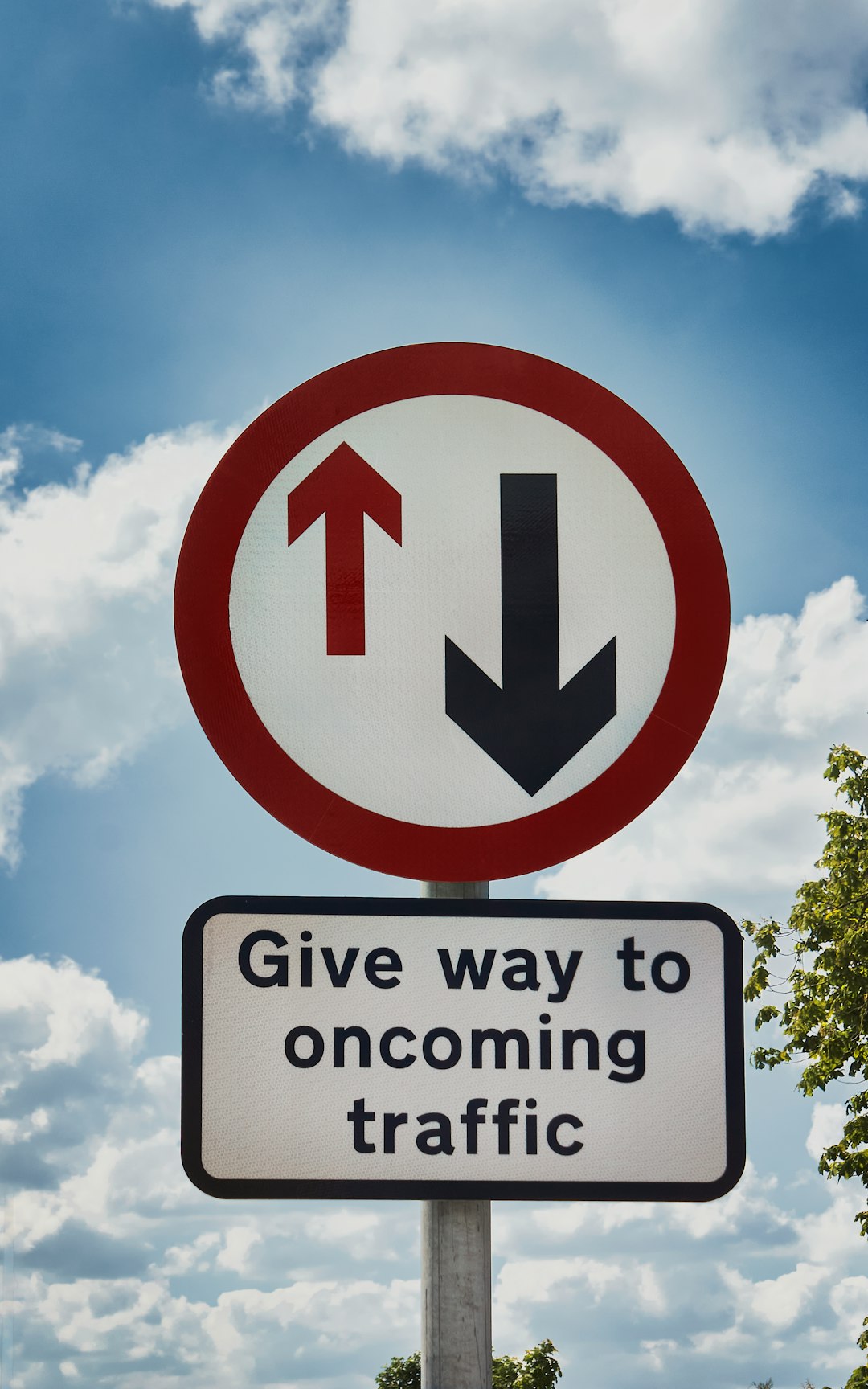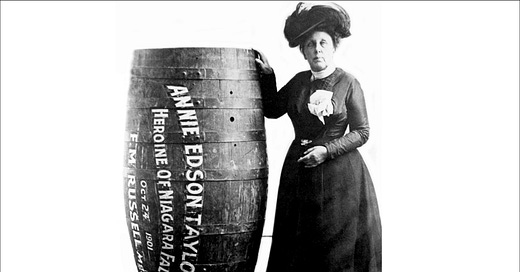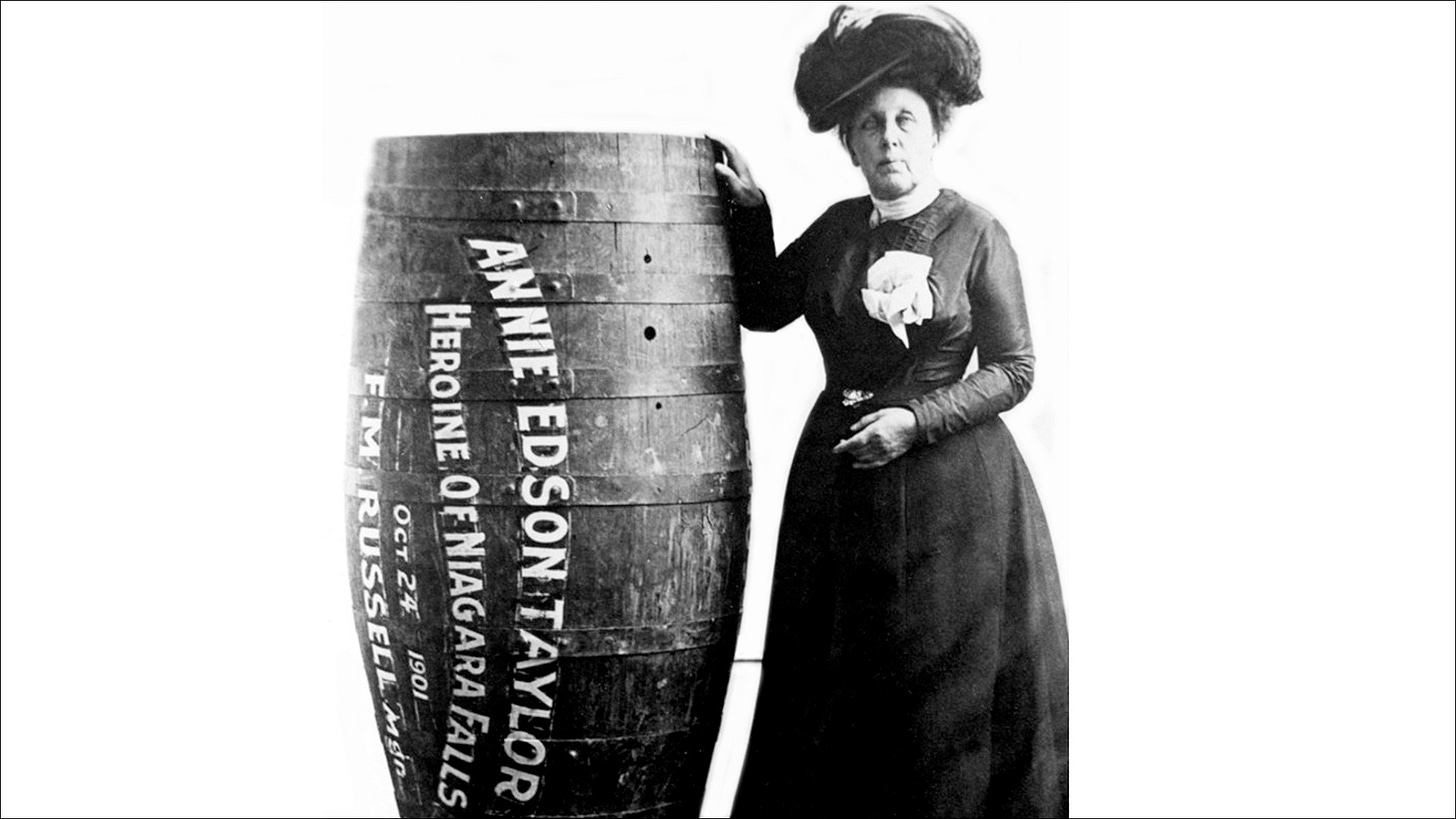This is part 5 in a 6-part correspondence series between me, Henriette Lazaridis, and writer Meta Wagner. Meta is writing three letters at Page Fright and I’m writing three here at The Entropy Hotel, and we’ll cross-post them.
Links will be added as the letters get published: letter 1, letter 2, letter 3, letter 4, letter 5, and letter 6.
One of our readers—thank you, all readers!—commented on Letter Four with a quotation from Eleanor Roosevelt. As reader Gina Vild put it, Roosevelt said “Do one thing every day that scares you”. Roosevelt’s actual words may have been this more expanded piece of wisdom:
“You gain strength, courage and confidence by every experience in which you really stop to look fear in the face. You are able to say to yourself, ‘I have lived through this horror. I can take the next thing that comes along.’ You must do the thing you think you cannot do.”
That final sentence is every bit as memorable and pithy as its more modern cousin “Do Scary Daily”.
You must do the thing you think you cannot do.
Indeed.
That’s the idea beneath the very concept of this Letters series. I think it’s safe to say that both Meta and I (yes, Meta?) feel it’s important to confront fears, not to run from them. We wanted to write this series precisely because we feel fear is important to growth, but fear has nuances worth examining. I think Meta and I agree that we learn by taking on the things (writing, sports, life events) that frighten us, challenging ourselves a little more each time as we become—like some self-help thriving opposite of the proverbial boiling frog—incrementally stronger. The fact that Meta and I have examined other approaches to fear doesn’t shake our inherent belief that fear can make us brave.
A paradox, no?

But let’s go back to a comment from another reader on the letter that began this correspondence. As Cathy Elcik put it in response to Letter One, “The bravest people I know are basically afraid all the time. Bravery isn’t the absence of fear but the will to do that fearful thing despite the fear, no matter how many superstitions or routines or habits it takes to get you through.” Channeling Eleanor Roosevelt right there, Cathy makes the salient point that bravery and fear are twined together, the one inherent to the other. Could it be the person who stands on an inch-wide lip on Half-Dome with no ropes or climbing protection (looking at you, Alex Honnold) is perhaps not brave but somehow constituted differently from the rest of us? (In fact, researchers have looked into Honnold’s brain and found his amygdala is non-responsive to fear.) The person who plunges over a cascade in a slalom kayak without even pausing to consider: is that person brave? or do we use a different word for them? Colloquially, we might even gasp and call this person, this utterly fearless person, a sociopath. Omani villagers watching Honnold climb thought he was a “witch” for his fearlessness. It’s human nature to expect a person to fear the scary thing even as they’re about to do it. If they don’t, we think they’re strange—and perhaps we find them a little scary.
Is there a moral—almost puritan—philosophy behind the notion that the person who stands rope-less on a cliff is somehow beyond the pale? Do we believe the rope-less climber should be afraid because we believe mightily in stories of triumph of strength over weakness, courage over fear? Do we value the person who understands risks and then takes them more than the person who does everything as if there were zero risk at all? [And when I say “we” here, the term is provisional. I’m not a puritan, not from puritan or even anglo heritage, so that “we” can’t include me. I’m generalizing about attitudes to risk here. My Greek family, for instance, has different thresholds for danger, different attitudes towards risk and fear, than, say, an English person descended from the Angles.]
I think the language around fear does assume the inevitability of risk—does assume that no person is an island, so no person can act completely free from consequence to themselves or to someone connected to them. And so because risk is inevitable, we step up to challenges with a choice: how much risk am I willing to undertake? how afraid of something do I need to be before the prudent choice is to step down?
In athletic endeavors, I like to say (out loud, sometimes) that “prudence is the better part of valor”. I don’t know how I found this saying—and I have now learned (just now) that it’s correctly discretion is the better part of valor and that it comes from Shakespeare, where it’s uttered somewhat cynically by Falstaff1. I did not grow up with this saying. I grew up with παν μετρον αριστον (moderation in all things) coupled with an opposing and also very Greek attitude that, heck, we can do anything because somehow, like our Olympian gods, we’re never going to die. Moderation and extreme behavior. It makes for a confusing philosophy. Do I overtake a car by pulling into oncoming traffic, or do I drive patiently behind?

Sometimes we know exactly when prudence is called for. No, do not pull into oncoming traffic just to get ahead of the Nissan! But most of the time, we don’t. Especially in our creative lives. Especially when the rewards for imprudent behavior seem to be great, and when the risk is hard to quantify. What if you can advance your career, your art, by banking on a storyline that will expose a family secret? What if your writing can say something profound or simply beautiful (as if those were different!) but the tale you tell will hurt someone you love? Well, in these two examples, I’ve loaded the question, haven’t I? Doesn’t it seem obvious that you don’t expose the secret and you don’t hurt your loved ones? Or is it? The difficulty lies in the more nuanced situations when the only one who wins or loses is you, when you’re the only one who’ll know if you took the easy way through a challenge in your work.
I know how this works, because I swear my writing notebooks are riddled with these dilemmas. Time after time, I’ve jotted down an idea for where my novel in progress should go, and then said nope and backed down. And every time I’ve turned away from the challenge point, I’ve ended up returning to that same point—sometimes months or even years later—only to see that that was exactly where I needed to go. The thing I turned away from because it would be too hard to pull off? That was exactly what the story needed if it was going to work—if it was going to let me say something profound and even maybe beautiful.
When I was first drafting Terra Nova, I wrote in my notes “should Viola [one of the main characters] become involved with the suffrage movement?” “No,” I wrote in reply. “That would be too obvious.” The truth was it would have been obvious the way I thought to do it then. In the first draft, I wouldn’t have tackled Viola’s suffrage involvement in the dense and thorny way I feel I ended up tackling it later. I backed down because I was afraid, then, to do the much harder work of getting it right. In revising the novel, I came back to that crossroads and chose the harder path. The risk there was only to me. Nobody would have cared or suffered if I’d stuck with my original version (the book probably wouldn’t have been published, though). The safe position I was writing from, and the safety of both my options, made it harder for me to see where I could even go to find the challenge.
To come back to the beginning, I do believe we learn by tackling the things that scare us. Even Alex Honnold seems to have worked to consolidate his fears (apparently he does have them) in order to become accustomed to them to the point of control. Like Honnold and his climbing, we become better skiers, runners, dancers, speakers of foreign languages, chefs by trying to do the hard things and mastering them one by one. We become better writers of dialogue, better shapers of character, more inventive storytellers, the more we try to tackle the craft and storytelling elements that we find daunting.
So, let’s take wisdom from Falstaff but also from Eleanor Roosevelt and Alex Honnold and from the conversations we have with ourselves as we make our calculations. What scary things can we find to do, so we can learn from them?
as “the better part of valor is discretion”.






As always, you've given me so much to think about as I write the last letter of our correspondence (at least for now!).
I have had that quote from Eleanor Roosevelt ('You must do the thing you think you cannot do') on my desk for many years and it has meant different things as I've aged. Now, it means to me that as women, we have very different fears from men and it's okay to acknowledge that there is a difference. These fears, (of any number of things, failure, success, weakness) are valid, rational, terribly annoying and sometimes useful because they almost always point to an area where we need to grow.